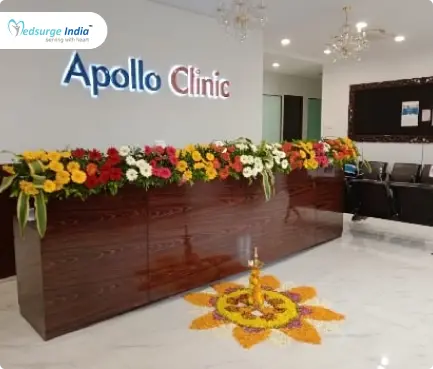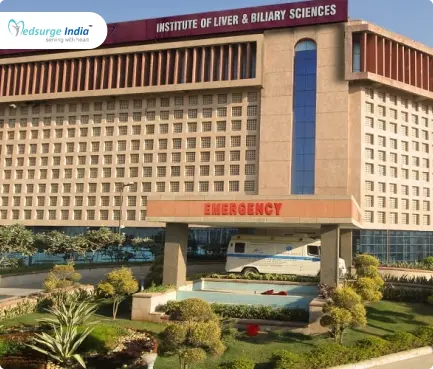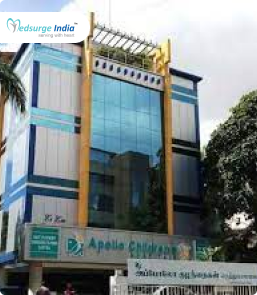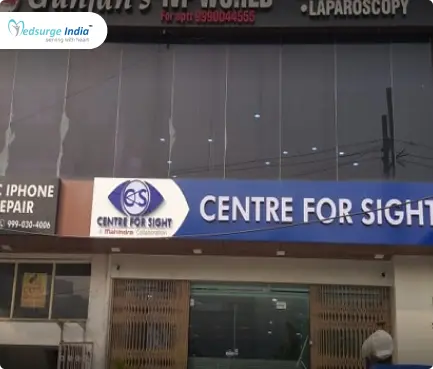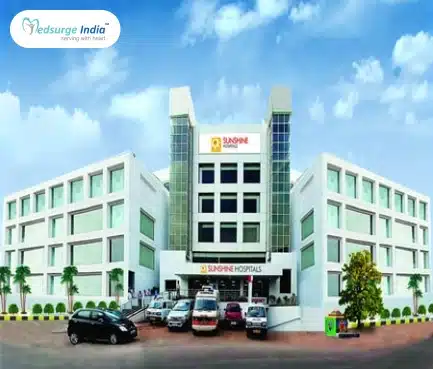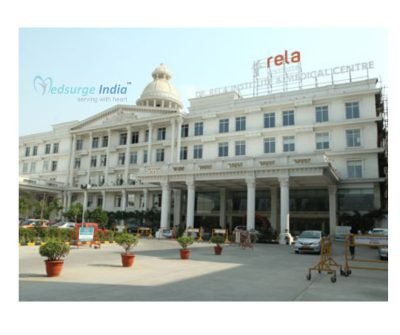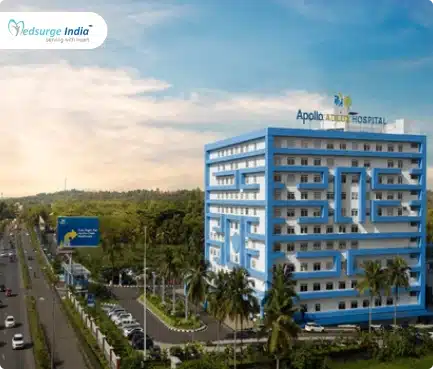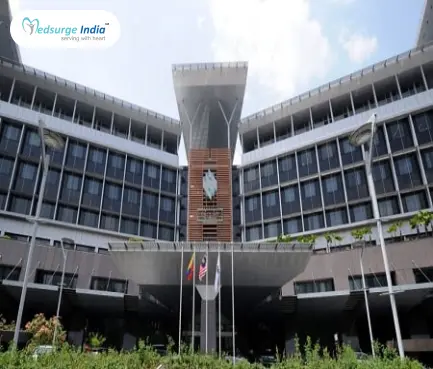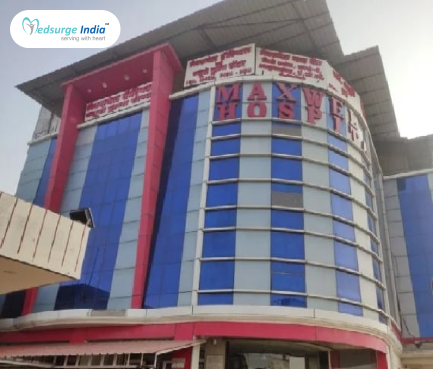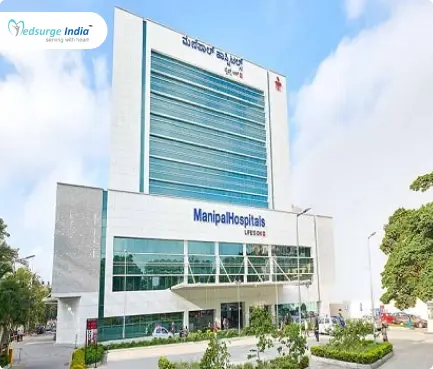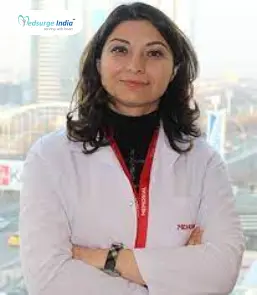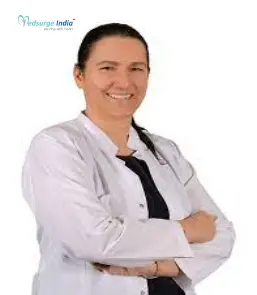
Prostate cancer is one of the most common types of cancer. Many prostate cancers are slow-growing and restricted to the prostate gland, where they are unlikely to produce serious harm. While some types of prostate cancer are slow-growing and require minimal or no treatment, others are aggressive and can spread quickly. The prostate cancer treatment in Turkey will be determined by the stage of cancer and the treatment option recommended by healthcare experts.
The affordable range of the cost of cancer treatment in Turkey is another favorable factor for international cases. This helps patients to access high-quality care at a reasonable cost and with no waiting period. Finally, Turkey is a wonderful country with a wide range of tourist attractions.
In comparison to European countries, the cost of prostate cancer treatment in Turkey is reasonable, and it varies depending on the type of treatment. The success is partly attributable to the sophisticated medical technology found in Turkish hospitals as well as the skill of the surgeons. Aside from these advantages, another crucial factor for prostate cancer treatment in Turkey is its appeal around the world is its inexpensive cost without compromising clinical standards.
What Is Prostate Cancer
The prostate gland is a small walnut-shaped gland found in men’s pelvic. It’s right adjacent to the bladder and can be examined with a digital rectal exam. Prostate cancer is a type of cancer that starts in the prostate gland and spreads throughout the body. It is the world’s second-leading cause of cancer death in men.
Prostate growths can be benign (non-cancerous) or malignant (cancerous) (cancer).
BPH (benign prostatic hyperplasia) is an example of benign growth:
- Are rarely a danger to one’s life.
- Do not penetrate the tissues that surround them.
- Do not spread to other parts of the body
- Can be removed and will grow back extremely slowly (though not generally).
Malignant Growth (Prostate Cancer):
- It’s possible that it’s a life-threatening situation at times.
- It has the potential to spread to nearby organs and tissues (such as the bladder or rectum).
- It has the potential to spread (metastasize) to other sections of the body (like lymph nodes or bone).
- Often, they can be eliminated, but they can also regrow.
By breaking out from a prostate tumor, prostate cancer cells can spread. They can transfer to other parts of the body via blood vessels or lymph nodes. Cancer cells that have migrated to other tissues may attach and develop to form new tumors, causing damage wherever they fall.
When prostate cancer spreads from its initial location to another part of the body, the new tumor has the same type of abnormal cells as the main (original) tumor and the same name. When prostate cancer spreads to the bones, for example, the cancer cells in the bones are prostate cancer cells. The disease is metastatic prostate cancer, not bone cancer. As a result, it’s referred to as prostate cancer in the bones.
Why Do People Choose to Have Prostate Cancer in Turkey
Turkey is a well-known medical tourism destination, particularly among Europeans. With medical care facilities and services, the country provides superior treatment. The best hospitals for prostate cancer treatment in Turkey are for prostate cancer treatment are world-class medical centers with a reputation for cutting-edge technology and patient-centered care. Top international accreditation organizations, such as Joint Commission International, have approved the hospitals for their exceptional clinical care services. With this certification, an international patient can be assured of a high level of safety and quality.
Patients are treated integrally by a multidisciplinary team of cancer specialists, urologists, and uro-oncologists based on their diagnosis. Prostate cancer treatment in Turkey is available at many hospitals, which has a number of advantages for patients, including a faster recovery, less chance of complications, a shorter hospital stay, and less post-operative pain and suffering.
What Are the Symptoms of Prostate Cancer
Prostate cancer generally has no symptoms in its early stages. When symptoms do appear, they may resemble those of BPH or an enlarged prostate. Prostate cancer can also cause symptoms unrelated to BPH. Consult your healthcare physician if you are experiencing urinary issues.
Prostate cancer symptoms include:
- Pain in the lower pelvic region
- Urinating more frequently
- Disorder, soreness, burning sensation, or a weak pee flow
- Urine with blood (Hematuria)
- Pain while ejaculating
- Discomfort or pain in the Lower back, hips, and upper thighs
- Appetite loss.
- Sudden Weight reduction
- Severe pain in the bones
What Are the Causes of Prostate Cancer
Prostate cancer develops when cells in the prostate have mutations in their DNA, according to doctors. The abnormalities cause the cells to divide and expand at a faster rate than normal ones. When other cells would die, abnormal cells continue to live.
The abnormal cells clump together to create a tumor, which can spread and invade surrounding tissue. Some abnormal cells can break away and move to other places of the body over time (metastasize).
Factors that increase the risk of developing prostate cancer include:
- Old Age
- Race
- Family history
- Obesity
Prostate Cancer Treatment Cost in Turkey
The average Prostate Cancer Treatment Cost in Turkey starts from 2,07,700.00 Turkish lira (6900 USD). The price of the treatment will also vary depending on the type of the patient’s condition and other factors. Furthermore, patients come for Prostate Cancer Treatment in Turkey as the nation is known to be one of the top destinations for medical tourism with the best doctors in every field and the most modern type of equipment.
Starting Prices of the treatment in different cities in Turkey
| Cities | Starting Prices |
| Istanbul | 2,07,700 Turkish lira (6900 USD) |
| Ankara | 2,01,700 Turkish lira (6700 USD) |
| Antalya | 2,04,700 Turkish lira (6800 USD) |
| Izmir | 1,95,600 Turkish lira (6500 USD) |
| Bursa | 2,07,700 Turkish lira (6900 USD) |
| Adana | 2,03,200 Turkish lira (6750 USD) |
Note: Please be aware that the costs listed are only an indication of what the treatment will cost initially and may change depending on a number of variables.
Types of treatment available in Turkey for Prostate Cancer
| Treatments | Starting Prices |
| Chemotherapy | 30,100 Turkish lira (1000 USD) |
| Radiation therapy | 90,300 Turkish lira (3000 USD) |
| Surgical treatment | 2,07,700 Turkish lira (6900 USD) |
| Focal therapies | 1,05,350 Turkish lira (3500 USD) |
| Immunotherapy | 36,100 Turkish lira (1200 USD) |
| Hormone therapy | 24,000 Turkish lira (800 USD) |
| Targeted drug therapy | 36,100 Turkish lira (1200 USD) |
Factors That Can Affect Prostate Cancer Treatment Cost in Turkey
The standard and excellence of medical treatment and amenities are comparable to those of the most prominent healthcare facilities in the world, even after deducting the cost of lodging, meals, and transportation. Following here are some variables that can affect Prostate Cancer Treatment Cost in Turkey:
- Medication costs.
- Duration of treatment.
- Geographical location.
- Hospitalization expenses.
- Government policies and subsidies.
- Medical tourism packages.
- Hospital reputation and infrastructure.
- The expertise and experience of medical professionals.
- The type and frequency of diagnostic procedures.
- The choice of treatment modality.
The most affordable Prostate Cancer Treatment Cost in Turkey is offered to patients worldwide by Medsurge India, under the supervision of highly qualified medical professionals.
How the Diagnosis of Prostate Cancer is Done
It’s controversial whether or not healthy men with no symptoms should be tested for prostate cancer. Most medical organizations advise men in their 50s to talk to their doctors about the benefits and drawbacks of prostate cancer screening. An evaluation of your risk factors and screening preferences should be part of the conversation.
The screening tests for diagnosis of prostate cancer are the following:
- Digital Rectal Exam (DRE)
- Prostate-specific antigen (PSA) test
If an abnormality is discovered during prostate cancer screening, your doctor may offer additional testing to evaluate whether you have prostate cancer, such as:
- Ultrasound
- MRI
- Prostate Biopsy
Your doctor will use the results of these tests to determine the stage of your cancer. The stages of prostate cancer are represented by Roman numerals ranging from I to IV. The cancer is restricted to the prostate in the early stages. Cancer has progressed beyond the prostate and may have migrated to other parts of the body by stage IV.
Get Free Cost Estimation
Procedure
What Are the Treatment Options for Prostate Cancer in Turkey
Prostate cancer treatment in Turkey can be done by various methods. You and your doctor will decide on the best course of action for you. The following are some of the most prevalent treatments:
Expectant Management: If your doctor believes your prostate cancer will not spread quickly, he or she may advise you to delay treatment. Alternatively, you can wait and see if you develop symptoms in one of two ways:
- Active surveillance
- Watchful waiting
Surgery: A prostatectomy is a procedure in which the prostate is surgically removed. The prostate, as well as the surrounding tissue, is removed during radical prostatectomy.
Radiation Therapy: To eliminate cancer, high-energy rays (similar to X-rays) are used. Radiation therapy is divided into two types:
- External Radiation Therapy
- Internal Radiation Therapy
Radiosurgery: Radiation therapy with high precision that focuses radiation beams on a specific location of the body, targeting the tumor while causing minimum damage to surrounding tissues.
Chemotherapy: Anti-cancer medications are used to kill or slow the growth of cancer.
Hormone Therapy: Blocking or reducing the production of male hormones that stimulate cancer cell development.
Choosing the treatment that is right for you may be hard. Consult your oncologist about the treatment choices for your specific cancer type and stage. Each treatment’s risks and advantages, as well as its adverse effects, can be discussed with your doctor. The way your body reacts to medications or other therapies is referred to as side effects.
Prostate cancer can not be cured with complementary or alternative treatments. Complementary and alternative prostate cancer treatments, on the other hand, may be able to assist you to manage the side effects of the disease and its treatment.
Almost everyone who has been diagnosed with cancer goes through some form of distress at some point. You may feel sad, furious, or anxious if you are distressed. You may have trouble falling asleep or find yourself stressing about your cancer all the time.
Regular physical examinations, medical testing, or both may be part of your follow-up treatment. Doctors will monitor your progress in the months and years ahead. Different people have different risks, so it is important to talk with your doctor about how your risk affects your schedule of follow-up care.
Physical therapy, career counseling, pain management, nutritional planning, and/or emotional counseling are some of the therapies that may be advised for cancer rehabilitation.
Share your medical reports with us at MedsurgeIndia.com to get more precise quotes from a hospital of your choice. Our team will help you to connect with the appropriate professionals and provide you with a cost estimate as well as information regarding the treatment.
Best Cancer Hospitals in Turkey
- Memorial Hospitals Group, İstanbul
- Medicana Bursa Hospital, Ankara
- Medicana International Ankara
- Acibadem Hospitals Group, Istanbul, Turkey
- LIV Hospital, Istanbul
- Istinye University Hospital, Istanbul
- Medical Park Group, İstanbul
How to Choose a Hospital for Prostate Cancer Treatment in Turkey
Hospitals that treat Prostate Cancer Treatment in Turkey are renowned for their services in patient care and hospitality. The hospitals that do Prostate Cancer Treatment in Turkey have some of Turkey’s top doctors and specialists who are experts in their professions. For an international patient, selecting a good hospital for treatment might be challenging. It is a crucial choice that needs to be made while keeping a number of things in mind, such as:
- Quality certificates and accreditations
- Hospital and transportation facility location
- Team of doctors and surgeons
- Advanced diagnostic and therapeutic equipment
- International patient assistance
How Can Medsurge India Help
Medsurge India is a prestigious support system for patients looking for doctors, hospitals, and specialized treatments. We’ll find the most suitable medical options for you. Regarding your medical issues, our team will give you a list of certified, reputable, and trusted doctors and hospitals. Apart from that, we offer a treatment strategy that fits your budget and, we assist patients with obtaining travel authorizations, medical visas, and a multitude of other things.
The Most Important Frequently Asked Questions
Q: Can Prostate Cancer Be 100% Cured?
A: Prostate cancer can be cured in the short term if diagnosed and treated early. Prostate cancer is diagnosed in the early stages in the vast majority of cases (more than 90%), making tumors more likely to respond to therapy. Surgery or chemotherapy aren’t always required for treatment.
Q: What Are the Signs That Prostate Cancer Has Spread?
A: Prostate cancer has the potential to spread to the lymph nodes in the groin area, as well as to other places of the body. Swelling and pain in the location where cancer has spread are the most prevalent symptoms. Cancer cells can restrict the outflow of lymph fluid. As a result of the fluid buildup in the legs, swelling may occur.
Q: What Is the Most Common Reason for Prostate Cancer?
A: Diet and prostate cancer are most likely linked through a hormonal mechanism. Fats promote the synthesis of testosterone and other hormones, and testosterone has been shown to hasten prostate cancer growth. High testosterone levels have been linked to the reactivation of latent prostate cancer cells.
Q: Is It Possible to Live Without a Prostate?
A: The loss of urine control and erectile function are two major quality-of-life difficulties linked with living without a prostate.
Q: How Does Life Change After Prostate Removal?
A: The entire prostate gland, seminal vesicles, and, in many cases, pelvic lymph nodes are removed during this procedure. Urinary incontinence (the inability to control your bladder) and erectile dysfunction, or ED, are the most prevalent adverse effects following prostate cancer surgery (the inability to achieve a full erection).
Top Hospitals for Prostate Cancer Treatment in Turkey
Top Doctors for Oncology and Oncosurgery
Dr. Alper Sonkaya
Consultant
Experience: 13 years of experience
Acibadem Hospitals Group
Istanbul, Turkey
Dr. Burcak Erkol
Consultant
Experience: 23 years of experience
Yeditepe University Healthcare Institutions, Istanbul
Istanbul, Turkey
Assoc. Prof. Kübra AYDIN
Associate Professor
Experience: 16 years of experience
Memorial Hospitals Group, İstanbul
Istanbul, Turkey
Dr. Erol Akgül
Professor
Experience: 28 years of experience
Medipol University Hospital, İstanbul
Istanbul, Turkey
Spec. Dr. Mustafa Solak
Senior Consultant
Experience: 15 years of experience
Hisar Hospital Intercontinental, Istanbul
Istanbul, Turkey
Dr. Melih Topçuoğlu
Associate Professor
Experience: 12 years of experience
Yeditepe University Healthcare Institutions, Istanbul
Istanbul, Turkey
Dr. M. Ali Kaplan
Consultant
Experience: 11 years of experience
Memorial Hospitals Group, İstanbul
Istanbul, Turkey
Dr.Ilan Gil Ron
Professor
Experience: 32 years of experience
Medical Park Group, Istanbul
Istanbul, Turkey
Dr. Aysegul Kargi
Consultant
Experience: 10 years of experience
Memorial Hospitals Group, İstanbul
Istanbul, Turkey
Dr. Enis Ozyar
Professor
Experience: 30 years of experience
Acibadem Hospitals Group
Istanbul, Turkey
Dr. Ozgur Cavdaroglu
Consultant
Experience: 18 years of experience
Ozel Saglik Hastanesi
Izmir, Turkey
Dr. Seref Kömürcü
Senior Consultant
Experience: 23 years of experience
Anadolu Medical Center, Kocaeli, Istanbul
Istanbul, Turkey
Dr. Emin Avşar
Consultant
Experience: 9 years of experience
American Hospital, Istanbul
Istanbul, Turkey
Prof. A.Uğur Yılmaz M.D.
Professor
Experience: 20 years of experience
Medical Park Group, Istanbul
Istanbul, Turkey
Dr. Petek Erpolat
Associate Professor
Experience: 12 years of experience
Medicana International Istanbul
Istanbul, Turkey
Dr Asli Saran Ikizler
Senior Consultant
Experience: 31 years of experience
Acibadem Hospitals Group
Istanbul, Turkey
Dr. Okhan Kuzhan
Consultant
Experience: 28 years of experience
Yeditepe University Healthcare Institutions, Istanbul
Istanbul, Turkey
Dr. Hatem Ubic
Senior Consultant
Experience: 18 years of experience
Kolan International Hospital, Istanbul
Istanbul, Turkey

